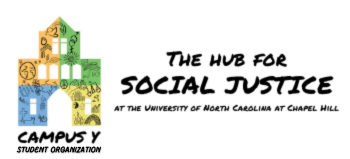As protesters gather in the streets, from Ferguson to Chapel Hill, it seems increasingly evident that we are on the cusp of another Civil Rights Movement, a “Third Reconstruction” as Reverend Barber calls it. One of the greatest tools activists can use is social media. This unprecedented way to transform movements, to garner support, takes the protesting occurring on the streets and continues it on Twitter feeds across the nation. Our country’s residents are more connected than we have ever been. Yes, this has spawned a wave of “slactivism.” But it has also spawned a media revolution.
Last Monday at noon, students and faculty gathered in the Freedom Forum Conference Center of Carroll hall to hear Deen Freelon, a professor at American University, speak about his research on quantifying the social media power of the Black Lives Matter Movement. I sat and listened as he explained what he had discovered. The Black Lives Matter hashtag gained momentum when non-activists picked up its message. June of 2014, #BlackLivesMatter had only 48 total tweets. Freelon explained that the hashtag truly gained popularity around November of that year, the same time as Darren Wilson’s non-indictment. With that ruling, everyday citizens were outraged, and subsequently invested in the hashtag, and the movement.
As Professor Freelon spoke about his findings, I realized that this age of “slacktivism” has the power to transform a movement into something we have never seen before. Social media has the ability to connect people; it provides platform that can reach farther than we could ever imagine.
And over the past two years, I’ve seen my fellow classmates use this platform to stand against injustice. We’ve raised our collective voices and said:
#BlackLivesMatter
#SayHerName
#SandraBland
#ICantBreathe
#BringBackOurGirls
#JeSuisCharlie
#ShoutYourAbortion
#WhyIStayed
#WhyILeft
#MuslimLivesMatter
#LoveWins
#WeAreNotThis
And so much more…
Not all of these hashtags are perfect. Not all of these hashtags have been “successful.” But if we continue to use social media as a tool for social change, as a tool to unite us, maybe we can make a difference – one hashtag at a time.
